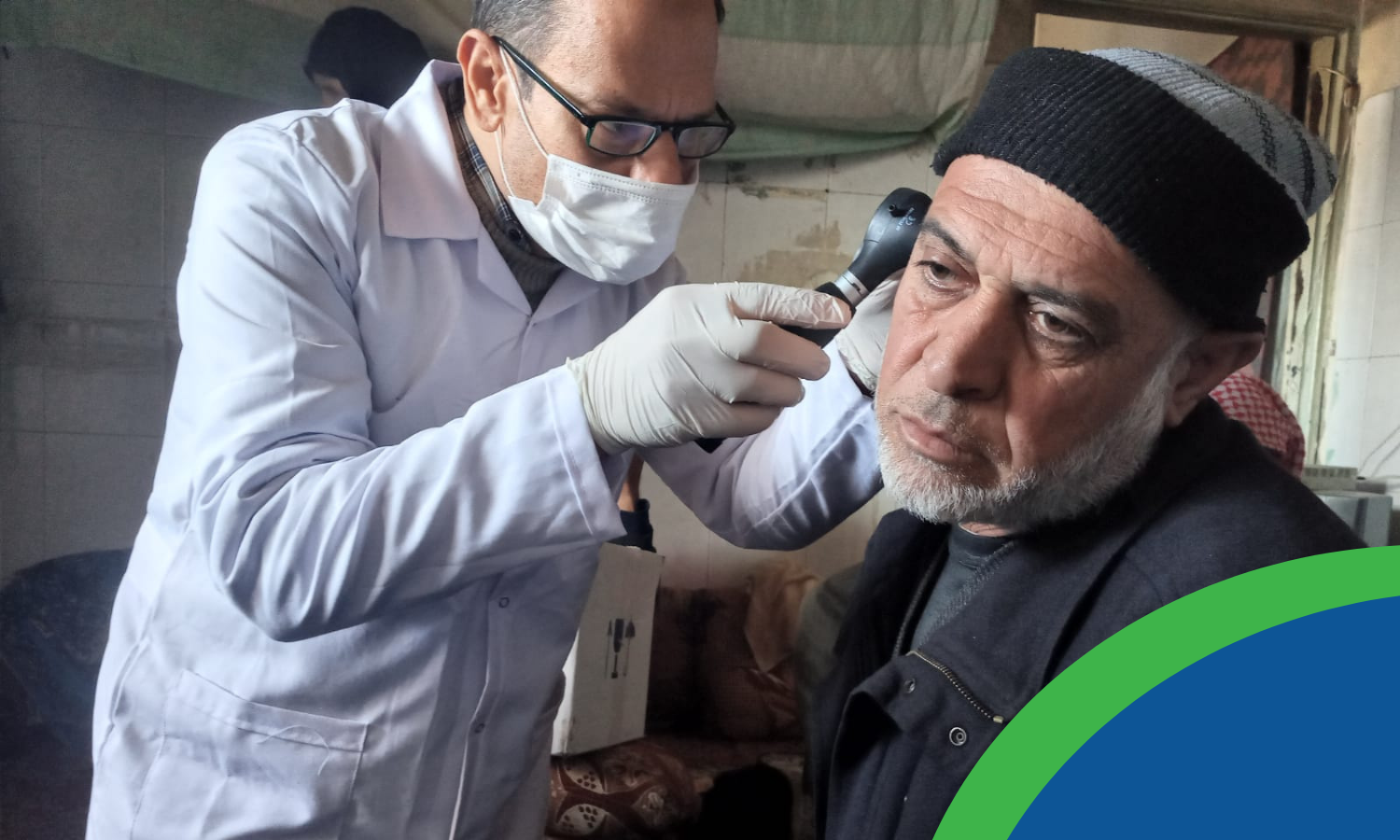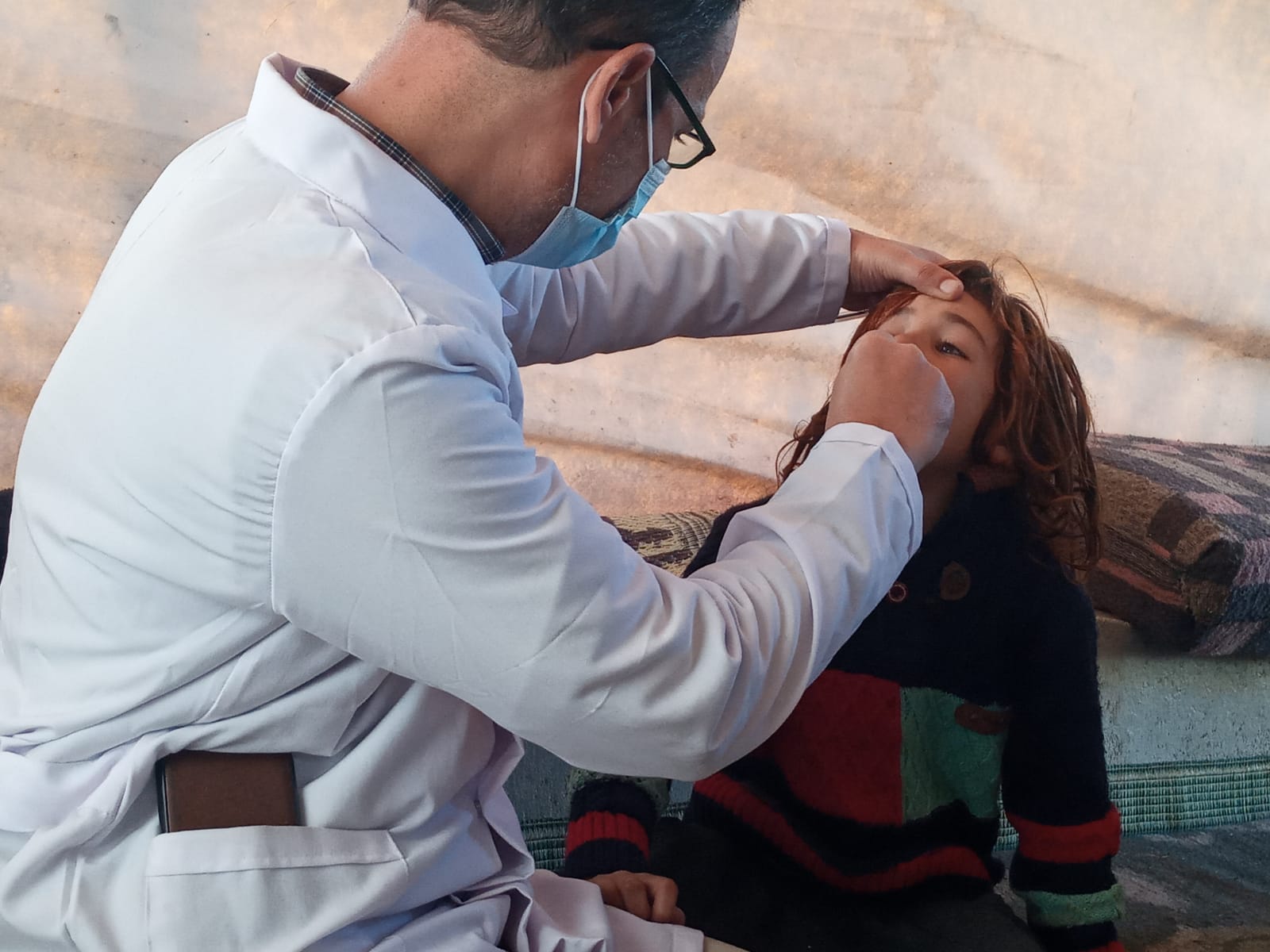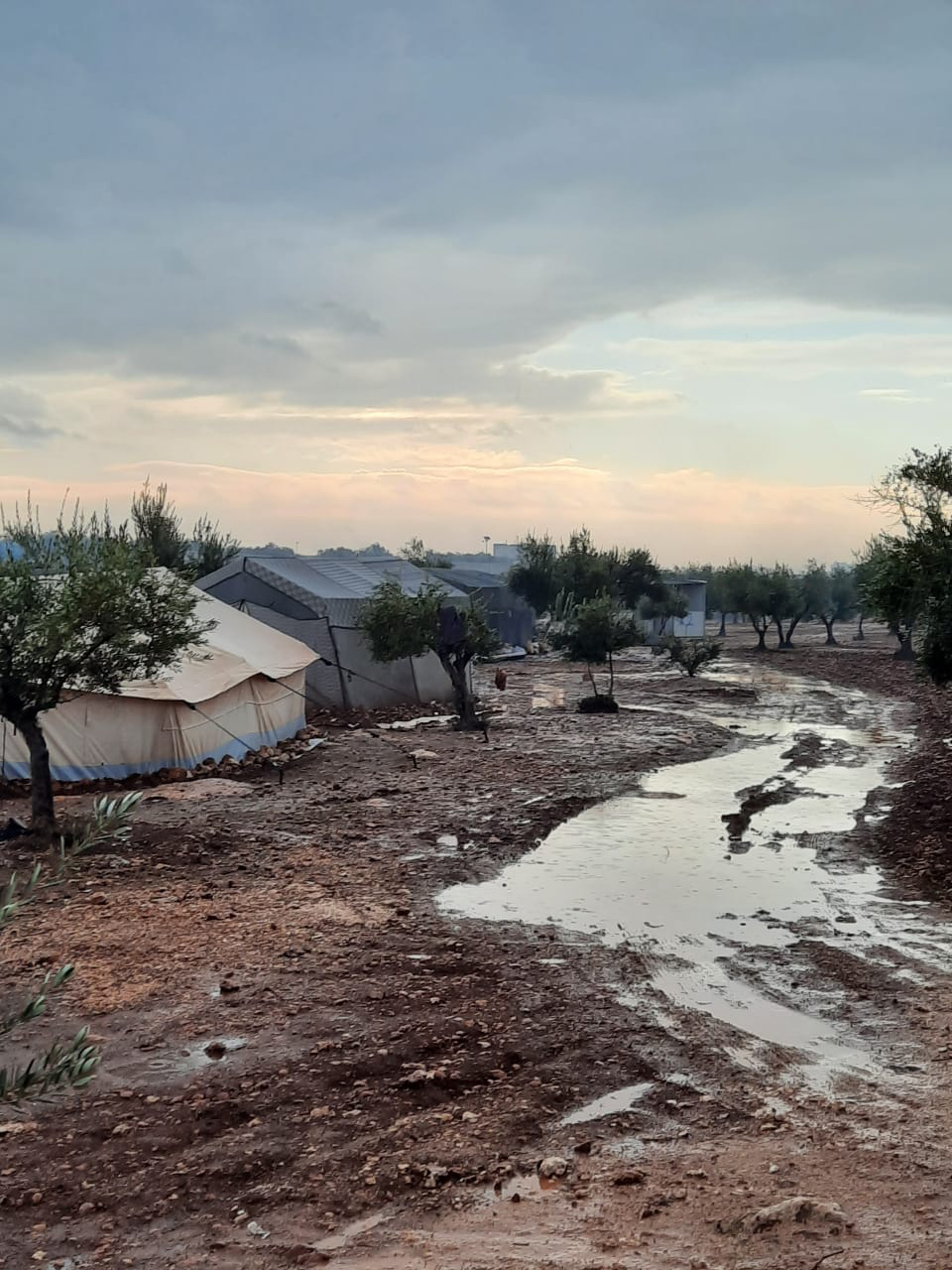Tens of thousands of families live in makeshift camps across Syria, displaced from their homes and communities by the ongoing war.
Now, in addition to outbreaks of conflict, extreme weather patterns preoccupy them as their fragile dwellings face the prospect of destruction each winter.
Extreme weather is becoming increasingly common in Syria.
Last year alone, strong winds battered parts of the country at the start of the winter and were followed in quick succession by three major snowstorms to see in the new year. The impact of each of these events was devastating.
The volatile economic circumstances, the unpredictable recurrences of violence and lack of economic opportunities facing the majority of Syrians means that most displaced families can only afford to build fragile, short-term structures to serve as homes in remote, informal camps.
Hundreds of these dwellings were torn up or blown away by the winds last year, scattering and soiling belongings and leaving families living far away from services without shelter.
The snowstorms that followed left families cut off from urban areas and fighting the cold. The flooding caused by the melting snow forced hundreds of families to abandon their makeshift homes, move locations, and rebuild again during the most difficult period of the year.
The impact of this destructive cycle on health is brutal.
“Diseases and illnesses spread quickly throughout the camps as a result of a lack of sanitation, general overcrowding, and lack of clean water sources,” says Dr Ramez, RI’s Rapid Response Senior Officer in Syria.
Cold weather, flooding and dangerous winds only exacerbate these problems.
Cold weather increases the occurrence of illnesses like respiratory infections, while the damage done by the flooding and winds increases the chances of viral and bacterial illnesses spreading because of a lack of sanitation facilities and heightened risk of contamination.
To combat these extreme conditions, Relief International incorporated a Rapid Response modality in our response to this crisis. Now dedicated medical professionals regularly visit camps to support residents and provide health services.
RI is currently one of the few organizations in the region providing this type of support, with eight teams ready to go out and provide urgent and routine health services to families affected by adverse weather conditions.
“The weather, especially the heavy rains, have been the main reason for our emergency responses over the past two years,” mentions Dr Ramez.
While RI has only had the rapid response modality in place for two years, it is already clear that these extreme weather events are becoming more commonplace each year.
“Climate change is a major cause of our response over the past two years” says Dr Ramez.
Unfortunately, it is the displaced people living in the camps in the region that suffer most as a result of this development.
In response, RI is looking to adapt and increase the services its Rapid Response Teams can provide, first and foremost by increasing the number of teams participating in the response.
“We are also working to secure a reserve drug stock that would help us to provide more medical services during emergencies,” states Dr Ramez. “Moreover, we are also working on adding new services to clinics, such as malnutrition survey, psychological support services, and medical awareness training.”
Together, these adaptations will allow RI to continue supporting displaced people dealing with the fallout of the protracted conflict, outbreaks of violence and climate change.


